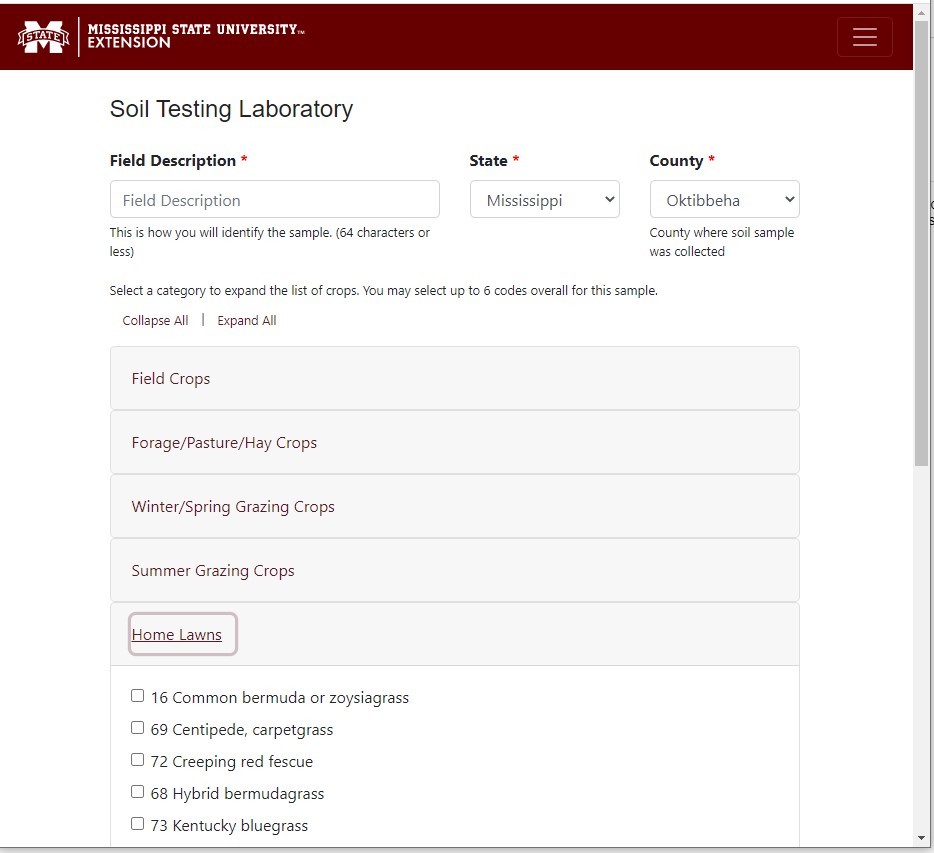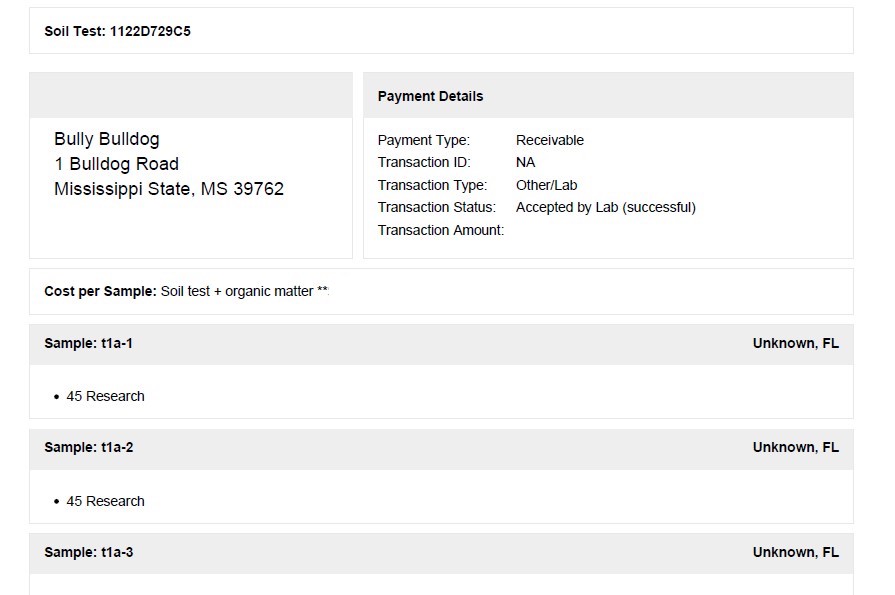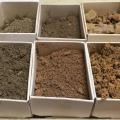Submitting a Soil Test to the Lab
Read on for instructions for submitting your soil test for nutrient analysis.
This test is appropriate for those interested in receiving liming and fertilizer recommendations.
Step 1:
Register your soil sample (even if you are paying via physical check/money order).
You will be prompted to make an account if you do not have one. Once you have logged in, fill out the required fields concerning your contact info and desired crop code.
Crop codes are categorized and listed via a dropdown menu:

You may select up to six different crop codes for each sample.
Most homeowners and farmers should choose “soil test.”

For those interested in knowing the soil organic matter, that option is available, but know that it will not impact fertilizer and lime recommendations. Soil organic matter is an indicator of overall soil health. Farmers may use %OM to help calculate herbicide application rates.
Composed material, mulch, and potting media samples are not truly “soil,” so it is not appropriate to test them for soil organic matter. Choose “soil test” for these samples.
Online payment options include credit card and eCheck.
If you would rather pay via physical check/money order, please include payment when mailing your soil sample (rather than mailing it separately). We will not process samples without payment.
Once you submit your sample form, you will get an automated confirmation email containing an attachment with your receipt. Please check your junk mail folder if you don't see it in your inbox.
Print this attachment to include with your soil sample.
If printing is not available, then at a minimum, write your order number somewhere on the soil sample box.

The order number is located in the top left.
Step 2:
Take the soil sample to your local Extension office or mail the soil sample directly to the MSU soil testing lab.
If mailing via the U.S. Post Office:
MSU Soil Testing
P.O. Box 9610
Mississippi State, MS 39762
If mailing via UPS/FedEx:
MSU Soil Testing
MS 9610
405 E Garrard Road
Starkville, MS 39759
If you take your soil sample to your local Extension office, they will mail the sample to our lab for free. However, if you are concerned with quick turnaround time, then mailing the sample yourself will probably be the fastest option. Taking the sample to the local Extension office may delay your results by several days.
Typical turnaround time is within 2 weeks from the time the soil sample is received at the soil lab. You will get an email containing your results.
Click here for instructions on how to interpret your results.
Publications
News
Are you already thinking about what you will plant this spring and summer? If you are, don’t forget to test your soil. It’s the best way to know if your garden or lawn needs critical nutrients and how much.
Early fall is one of the best times to test your soil. A soil test can tell you if your lawn or garden needs critical nutrients and how much. This way, your plants and your wallet will stay healthy. You won’t waste your money applying fertilizer or lime that your plants don’t need.
Sweet potato growers in Mississippi can get free nematode testing of soil samples they send to Mississippi State University from now until Dec. 31, 2024. The samples can be submitted in nematode bags available at local county MSU Extension Service offices; samples are also accepted in quart-sized, sealed plastic bags.
Success Stories
Many Clay Countians know Art Sanders as the man who brought an abandoned pecan orchard back to life.
Brian Andrus irrigated exactly zero times on his Sunflower County farm in 2021. He didn’t even turn on his well.
4-H Debuts New Curriculum · Extension Develops Workforce · La-Z-Boy Donates Fabric · Stars Focus On Sustainability · Extension Directs Herbicide Training · Youth Discover Dairy Science · Soil Lab Welcomes New Manager








